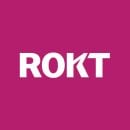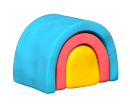Customer success has transformed from a support function to a vital strategic role in businesses, focusing on proactive engagement, retention and growth.
In today’s competitive landscape, the strength of a CS team can make or break a company’s ability to maintain customer relationships — according to 2022 research from Salesforce, close to 90 percent of buyers across industries value a company’s customer experience as much as products or services.
However, building a successful CS team requires more than just hiring individuals with technical expertise or soft skills — it demands finding the right fit for your organization's mission and culture.
In these relationship-oriented roles, CS team members need to be great listeners, proactive problem-solvers and effective communicators. When team members understand the company’s mission and value propositions, they can better anticipate customer needs and effectively demonstrate the business’s commitment to customer success.
By prioritizing fit and cultivating a culture of learning, companies can build dynamic teams that drive customer satisfaction and organizational success. Built In NYC heard from four CS pros about how they found the best-fit team for their careers.
Rokt leverages AI and machine learning to optimize e-commerce transactions, creating personalized experiences that drive engagement and revenue.
How did you decide to join theteam at Rokt? What stood out to you the most during the interview process?
When evaluating my decision to join Rokt, one of the most important considerations for me was the team culture. I wanted to join an organization of smart people who would support my growth and engage in collaborative discussions that pushed my thinking further.
During the interview process, I met with several senior leaders within the organization, who each demonstrated a genuine curiosity to understand the rationale behind my interview responses. They dug deep into my simulation findings, showing curiosity about my thought process and asking not just about the conclusions I reached but how I arrived at them. This signaled to me that Rokt had built a team that valued critical thinking and prioritized a collaborative approach to solving problems. The opportunity to contribute to a forward-thinking environment where I could make a meaningful difference, all while continuing to grow, was exactly what I was looking for.
What keeps you on your current team? Do you have any favorite aspects of your role or the team culture? Are there opportunities for advancement?
What keeps me on my team is the opportunity to work cross-functionally. Solving real-time problems for major clients isn’t possible without collaboration across departments. It’s rewarding to champion market insights and work with other teams to drive actionable outcomes — whether expanding capabilities with product, refining growth forecasts with rev ops or developing new resources with marketing. This strategic work opens doors for growth and advancement.
Rokt supports development through benefits like the "Level-Up" allowance and coaching, empowering team members to learn new skills and engage effectively. For me, driving cross-functional projects with stakeholders across the org has challenged my way of thinking and allowed me to expand my impact beyond the accounts I oversee, leading to progression in my career.
“Driving cross-functional projects with stakeholders across the org has challenged my way of thinking and allowed me to expand my impact beyond the accounts I oversee.”
What advice would you give to CS leaders eager to strengthen their own teams? What do you consider the most important elements to have on a CS team?
In my experience, the biggest impact on team performance comes from taking a more intentional approach to aligning individual goals with company objectives. As a leader, it’s your responsibility to get to know each team member, create space for open dialogue and ensure everyone is working towards a shared purpose. By investing time in understanding each team member’s unique communication style and learning how they derive value from their work, you can cultivate strong, trusting relationships that unify the team during times of challenge.
Over the last several years, I’ve worked on laddering individual goals discussed with each team member up into department and organizationwide objectives and key results. This intentional approach to alignment helps to clarify each individual's contributions, reinforces their role in driving broader organizational success and ultimately increases their overall engagement. When team members feel valued and supported in expressing their ideas, it creates a collaborative environment that leads to better outcomes for both our clients and the organization at large.
EliseAI provides AI-powered conversational tools to streamline communication and enhance customer support experiences across various industries.
How did you decide to join the team at EliseAI? What stood out to you the most during the interview process?
I was looking to work for a company that had an approach to customer success that emphasized relationship building. When EliseAI reached out, from that point forward it was an easy decision. The interview process was transparent about the fast-paced and growing customer success team and revealed a culture of collaboration that I was missing in prior roles. Having been here for some time now, I can say that the team provided a great taste of the fantastic culture that EliseAI has built and I didn’t walk into any surprises.
What keeps you on your current team? Do you have any favorite aspects of your role or the team culture? Are there opportunities for advancement?
On the strategic team, we work with larger clients which means we get to work with a wide variety of stakeholders and truly understand someone’s business operations from top to bottom. Learning how a client operates and being able to provide quick, impactful solutions to problems they have had for a long time never gets old, and at EliseAI, we are lucky to work with a fantastic industry.
EliseAI is the most collaborative and solution-centric environment I’ve ever worked in because the question is always “what can we do better?” As a result, the company has grown tremendously in 2024. With that growth, comes exciting growth opportunities that I look forward to exploring.
What advice would you give to CS leaders eager to strengthen their own teams? What do you consider the most important elements to have on a CS team?
It is clichéd because it’s true, but learn to harness the unique talents of your team members and have them learn to lead with those talents. Going out of your comfort zone is important, but it’s always better to avoid swimming upstream. Avoiding a monolithic approach to CS allows you to create an agile team that can tackle the wide variety of client challenges that inevitably arise over the course of a business partnership. Staying focused on finding solutions to current challenges will always be a winning strategy.
“Going out of your comfort zone is important, but it’s always better to avoid swimming upstream.”
Healthee offers an AI-driven platform designed to simplify access to healthcare information and benefits, empowering employees to make informed health decisions.
How did you decide to join the team at Healthee? What stood out to you the most during the interview process?
The level of honesty from all my interviews was unmatched. Speaking with active customer success managers and getting genuine feedback about the organization was invaluable. I also remember feeling energized throughout the process, excited to make an impact. Having worked in various healthcare roles, this opportunity allowed me to bring all my previous experience into one role where I could drive immediate change.
What keeps you on your current team? Do you have any favorite aspects of your role or the team culture? Are there opportunities for advancement?
It’s the sense of support and motivation from close team members and cross-functional collaboration across other departments that really stands out. I genuinely look forward to connecting with people in the organization through asking about their families and hobbies because it reinforces that it’s people first, and work is something we help each other succeed in.
The career ladder also interests me, as new tasks and goals present opportunities to expand and put new skill sets to the test.
What advice would you give to CS leaders eager to strengthen their own teams? What do you consider the most important elements to have on a CS team?
The ability to communicate effectively and with purpose is key. In the CS role, you need to be both an internal expert and a customer/client advocate. It’s essential to convey true value in a powerful way and bring together resources to drive results.
An essential aspect of the team dynamic is having multiple perspectives, where everyone can bring ideas to the table freely and learn from each other. Don’t be afraid to fail — learning from those opportunities is what drives growth.
“Don’t be afraid to fail — learning from those opportunities is what drives growth.”
Clay helps RevOps and growth teams scale personalized outreach by maximizing data coverage with more than 75 enrichment tools and AI-powered content generation, all from a single platform.
How did you decide to join your current team? What stood out to you the most during the interview process?
I'm a strong believer that customer experience is either the best job in the world or the worst job in the world depending on two things: One, if you are personally very passionate about the product, and two, if the company has a strong culture of seeking out and listening to customer feedback.
If both things are true, CX in my opinion is one of the best, most fulfilling jobs in the world. If either are not true, the opposite can be true.
When I was thinking about joining Clay, these were the two main things I evaluated in addition to getting to know the people that work here. For the first, I was already very passionate about the product, having seen my team use it at my previous company. For the second, I saw the Clay team listening to customer feedback every day in our Slack community. Finally, the people were my ideal mix of insanely smart, but also fun and quirky. With all three of these things exceeding my expectations I knew I needed to be a Claymaker.
What keeps you on your current team? Do you have any favorite aspects of your role or the team culture? Are there opportunities for advancement?
There is so much to love about working at Clay! I particularly enjoy how each day is different than the last and there are always interesting challenges to tackle. I also love how collaborative the team is, in particular our CX and engineering teams. Our engineers aren’t afraid to get in the trenches with us and join customer calls or respond to customer questions in Slack on a feature they built. At Clay, creating incredible customer experiences is truly a team sport!
I also love how I get to use our own product to build CX programs. I’ve used Clay for everything from automating sales handoff notes with call recording summaries to alerting me and my team when a main Clay champion leaves their company or a new key hire joins. I’ve also used it for fun things like automatically creating AI-generated songs when a new customer comes onboard. Through these programs, I get to put myself directly in the customer’s shoes and experience the joy they feel when building in Clay firsthand.
“Through these programs, I get to put myself directly in the customer’s shoes and experience the joy they feel when building in Clay firsthand.”
What advice would you give to CS leaders eager to strengthen their own teams? What do you consider the most important elements to have on a CS team?
If you are a CS leader and haven't personally experienced owning a customer at your company, you should find a way to do that — especially if you are building from the ground up. Nothing beats experiencing the challenges and opportunities customers face firsthand, and your team will also respect you for not just being able to talk the talk but also walk the walk.













